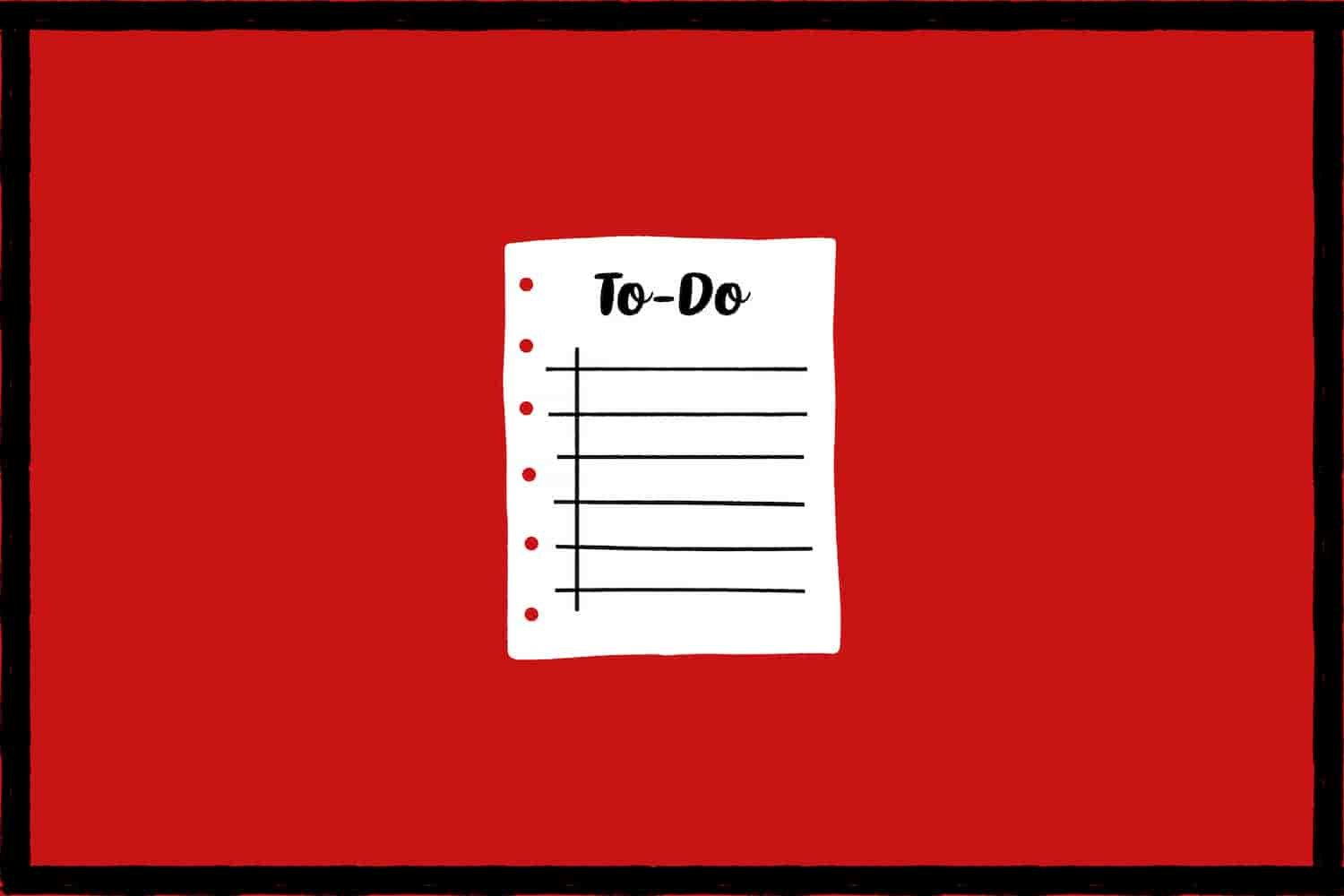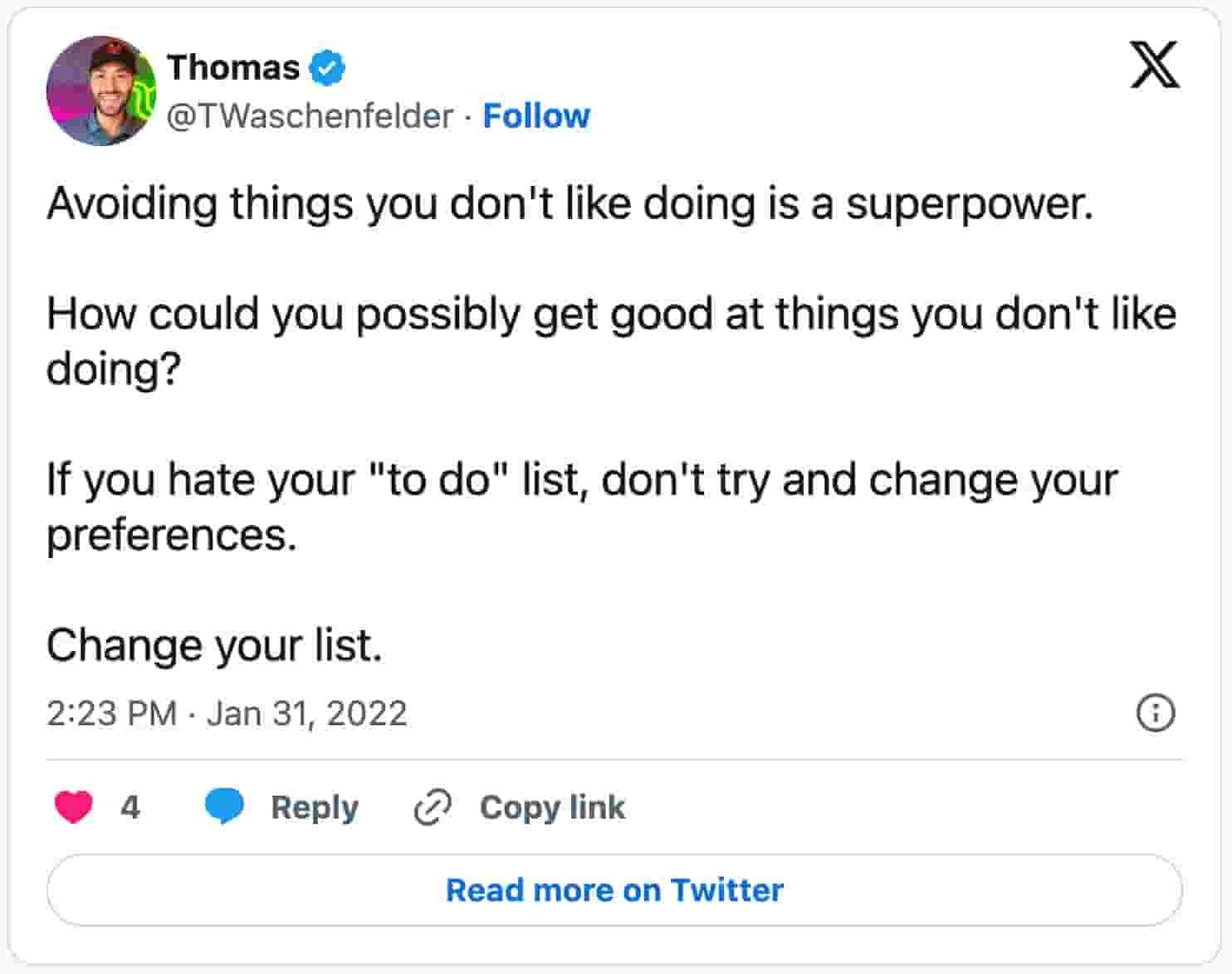The Power of Procrastination: Avoiding What You Don’t Really Want To Do
Most people feel bad when they procrastinate. It’s seen as a problem to “fix” with the latest productivity hack, software update, or “focus” mode. You’ve been programmed to feel shame when you delay doing something on your to-do list you just don’t feel like doing.
But procrastination is not a problem to solve. It’s a signal that tells you what’s important to YOU (not to someone else). And it’s a signal you should listen to.
Procrastination Is Not A Problem, It’s A Signal.
Procrastination is a signal that you don’t want to do something. There are usually two possible reasons: you’re scared to do it, or you just don’t want to do it. And you have to be able to tell the difference.
Fear-Based Procrastination
With fear-based procrastination, you generally want to do the thing you’ve been delaying, but you’re scared to. Maybe that’s because you have a fear of the unknown, or you’re waiting for the “perfect time” for things to line up. Or, maybe you’re scared you’ll fail (and embarrass yourself along the way).
Fear-based procrastination usually shows up with bigger life decisions. Things like moving across the country or changing careers. But it can also play out with smaller decisions, like starting a blog or a side-hustle.
I experienced fear-based procrastination when I wanted to quit my job. I procrastinated for almost a year because I was scared to live without a steady paycheck. And I didn’t want to face the embarrassment of striking out on my own and then failing.
But once I did quit, it quickly became one of the top three decisions I ever made (the two others being marrying my wife, and moving to the city I live in now).
That’s the thing about this kind of procrastination - once you do it, it’s awesome. It’s not nearly as scary as you think it’ll be.
Preference-Based Procrastination
The other reason you could be procrastinating is not that you’re scared to do the thing, but that you just don’t want to do it. And that’s critical information to have.
If you’re on a career path that holds little interest for you, you should not try and change your likes and natural interests to align with your to-do list. Instead, you should change your to-do list.
Derek Sivers talks about this in an article called Goals Shape The Present, Not The Future, writing:
“You have a goal you’ve been putting off. You want to do it someday. You’ve been meaning to take real action on it, but could use more motivation. Let it go. It’s a bad goal. If it was a great goal, you would have jumped into action already. You wouldn’t wait. Nothing would stop you… Judge a goal by how well it changes your actions in the present moment. A bad goal makes you say, ‘I want to do that someday.’ A great goal makes you take action immediately.”
Society won’t encourage this, but if you’ve set a bad goal, change the goal. Don’t try and “motivate” yourself to get it done if you don’t want to do it. Try and change careers or projects instead.
You know what it feels like to be engaged - to be excited! Go find a career path that gives you that feeling.
Nassim Nicholas Taleb writes in his book, Antifragile: Things That Gain From Disorder:
“Since procrastination is a message from our natural willpower via low motivation, the cure is changing the environment, or one’s profession, by selecting one in which one does not have to fight one’s impulses. Few can grasp the logical consequence that, instead, one should lead a life in which procrastination is good, as a naturalistic-risk-based form of decision making.”
Procrastination tells you about yourself. Don’t ignore that information - use it to align your life with your natural impulses.
Procrastination Is A Filter For Bad Information.
Procrastination has been with humans for as long as we’ve been around. It’s hardwired into our minds for a reason - it can, at times, stop us from acting on bad information.
Nassim Nicholas Taleb, in his book, Antifragile: Things That Gain From Disorder, writes that procrastination is a “natural defense” from acting on bad information. He writes:
“Few understand that procrastination is our natural defense, letting things take care of themselves and exercise their antifragility; it results from some ecological or naturalistic wisdom, and is not always bad—at an existential level, it is my body rebelling against its entrapment… In fact we humans are very bad at filtering information, particularly short-term information, and procrastination can be a way for us to filter better, to resist the consequences of jumping on information.”
If you don’t want to do something, it could be because you instinctually know it’s too early to act. Listen to that instinct and see how things play out.
Avoiding What You Don’t Like Doing Is A Superpower.
Most people get caught in the habits of life. They don’t really make choices about their career, where they live, or even who they marry. They just “go with the flow,” which is an easy way to end up doing something you don’t want to do.
A lot of successful artists eventually become successful because they have a very low tolerance for doing things they aren’t interested in. They just avoid doing things they hate. So they have no other choice than to struggle to do what they love. And then eventually through a combination of skill, consistency, and luck, they hit it big.
Artists create out of love, not out of obligation. You should too. Engineer and creator Daniel Vassallo writes on Twitter:
“Procrastination is information. It shows you where your ambitions mismatch your true preferences. And if you force yourself to create something you don't feel like doing, it will show. And if you happen to succeed, you would have hated it so much, you wouldn't do it again… Procrastination often reveals what's uninteresting, unimportant, and non urgent. Are those the kind of things you want to spend your energy on?”
Avoiding what you don’t like doing is a superpower. So stop feeling guilty for procrastinating. Instead, change things up so you do less of the things you hate, and more of the things you like.
Start now.
If You Want More Ideas Like This, Follow Me On Twitter And Subscribe To My Newsletter:
—
ARTICLE SOURCES
Derek Sivers: Goals Shape The Present, Not The Future.
Taleb, Nassim Nicholas. Antifragile (Incerto) . Random House Publishing Group. Kindle Edition.



